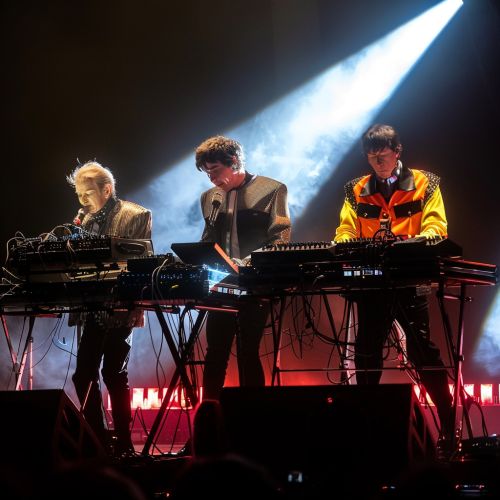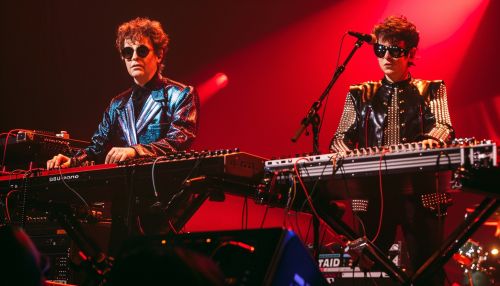The Buggles
History
The Buggles were a British new wave band formed in London in 1977 by Trevor Horn (bass guitar, vocals) and Geoff Downes (keyboards). The band is best known for their 1979 debut single "Video Killed the Radio Star", which was the first music video ever played on MTV in 1981. The Buggles' music is characterized by its futuristic sound, which combines elements of synth-pop, new wave, and progressive rock.


Formation and Early Years
Trevor Horn and Geoff Downes met in the mid-1970s while working as session musicians in London. Both were influenced by the emerging electronic music scene and shared a vision of creating a band that would utilize the latest technology in music production. They officially formed The Buggles in 1977, naming the band as a playful take on "The Beatles" and "The Bugs," reflecting their interest in futuristic themes.
"Video Killed the Radio Star"
The Buggles' breakthrough came with the release of their debut single, "Video Killed the Radio Star," in September 1979. The song was a commentary on the changing landscape of the music industry, with the rise of television and music videos. It became an international hit, reaching number one in 16 countries. The accompanying music video, directed by Russell Mulcahy, was notable for its innovative use of special effects and futuristic imagery.
The Age of Plastic
In January 1980, The Buggles released their debut album, The Age of Plastic. The album was a concept record that explored themes of technology, media, and the future. It featured a blend of synthesizers, drum machines, and traditional rock instruments. Key tracks included "Living in the Plastic Age," "Elstree," and "Clean, Clean." The album received critical acclaim for its production and songwriting, solidifying The Buggles' place in the new wave movement.
Collaboration with Yes
In 1980, Horn and Downes joined the progressive rock band Yes for their album Drama. Horn took on lead vocals, while Downes played keyboards. This collaboration marked a significant shift for Yes, incorporating more electronic elements into their sound. Despite mixed reactions from long-time Yes fans, Drama was a commercial success and showcased the versatility of The Buggles' members.
Adventures in Modern Recording
After their stint with Yes, The Buggles returned to the studio to work on their second album, Adventures in Modern Recording, released in 1981. The album continued to explore futuristic themes and featured tracks like "I Am a Camera" and "On TV." However, it did not achieve the same commercial success as their debut. Despite this, Adventures in Modern Recording has since been recognized for its innovative production techniques and remains a cult favorite among fans.
Musical Style and Influence
The Buggles' music is characterized by its use of synthesizers, drum machines, and other electronic instruments. Their sound is often described as a blend of synth-pop, new wave, and progressive rock. The band's futuristic themes and innovative production techniques have influenced a wide range of artists in the electronic and pop music genres.
Production Techniques
Trevor Horn, who later became a renowned music producer, was instrumental in developing The Buggles' distinctive sound. He employed advanced recording techniques, such as multitrack recording and the use of sequencers, to create layered and textured compositions. Horn's production style emphasized clarity and precision, which became a hallmark of The Buggles' music.
Legacy
The Buggles' influence extends beyond their own recordings. Trevor Horn's work as a producer for artists like Frankie Goes to Hollywood, ABC, and Seal has left a lasting impact on the music industry. The band's pioneering use of music videos also paved the way for the MTV era, changing how music was consumed and promoted.
Discography
Studio Albums
- The Age of Plastic (1980)
- Adventures in Modern Recording (1981)
Notable Singles
- "Video Killed the Radio Star" (1979)
- "Living in the Plastic Age" (1980)
- "Clean, Clean" (1980)
- "Elstree" (1980)
- "I Am a Camera" (1981)
